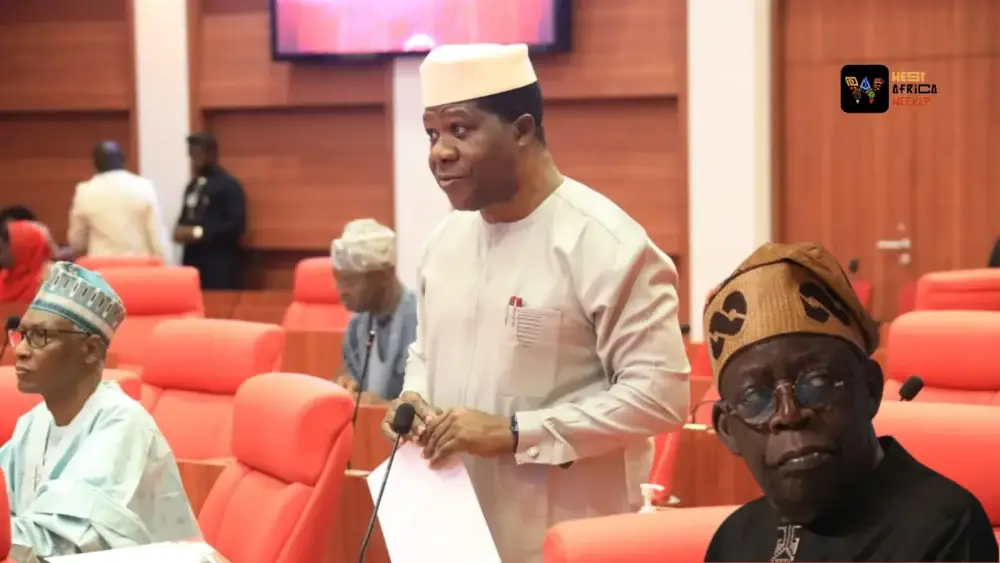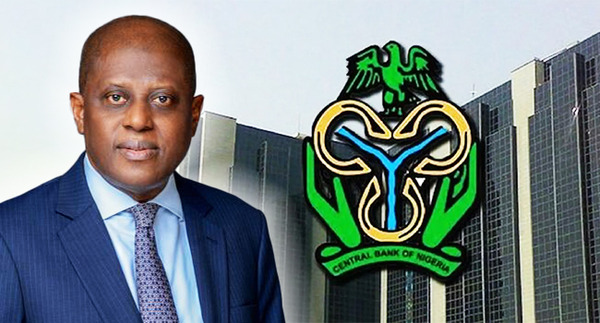
Nigeria’s Senate has passed for second reading a Bill seeking to amend the Finance Act 2023 and impose a “windfall” of 50 per cent taxation on foreign exchange (FX) gains realised by commercial banks in the country.
This is contained in a letter sent by President Bola Tinubu to the Senate on Wednesday, indicating a “windfall tax” on FX to be collected by the Federal Inland Revenue Service (FIRS).
There shall be levied and paid to the benefit of the Federal Government of Nigeria a tax of 50 per cent on the realised profits from all foreign exchange transactions of banks within the 2023 financial year,” the letter reads in part.
Following the President’s letter urging for swift consideration of the 2023 Finance Act Bill, sponsored by Senate Majority Leader Senator Bamidele Opeyemi, it was considered for first and second reading at the upper chamber.
Presenting the 2023 Finance Act Bill, Senator Opeyemi stated the President’s proposals are laudable and will enhance the critical needs of Nigerians, including funding capital, education, healthcare, and public welfare initiatives relative to the “Renewed Hope” agenda.
In an opposing view, Senator Seriake Dickson, representing Bayelsa West, argued that Nigeria is currently “economically depressed” to allow for more taxation.
Let’s step down the taxation of banks for wider consultation. We cannot run our government with continuous taxation. We should be cautious because we are managing a depressed economy. Even the banks are still battling with recapitalisation”, he said.
With other majority lawmakers voting in support of the Bill, it was referred to the Committee on Appropriation for further legislative input and is expected to report back in a week.
Meanwhile, the Bill seeking 50 per cent taxation on Nigeria’s recorded N3.37 trillion in foreign exchange revaluation gains in FY 2023 and Q1 2024 has led to citizens’ reaction, indicating additional financial burden as banks would pass the charges on customers if and when the proposed tax is enacted into law.
Also, Nigerians are demanding the possibility that the proposed tax would be used for public infrastructure development in a presumably corrupt political atmosphere.
Read : Star Garments Group Invests $15 Million in Togo, To Create 4,520 Jobs By 2030
Cape Verde’s National Union of Civil Aviation Pilots To Embark On A 6-Day Strike
About The Author
Mayowa Durosinmi
author
M. Durosinmi is a West Africa Weekly investigative reporter covering Politics, Human Rights, Health, and Security in West Africa and the Sahel Region
Mayowa Durosinmi
M. Durosinmi is a West Africa Weekly investigative reporter covering Politics, Human Rights, Health, and Security in West Africa and the Sahel Region
Related Articles
Tanzania Eyes Gold Sales as Aid Declines and Infrastructure Needs Grow
Tanzania is weighing plans to sell part of its gold reserves to...
ByWest Africa WeeklyJanuary 29, 2026Mali Says Reports of New Three-State Sahel Currency Are False but Talks Continue on Economic Integration
Mali’s government has rejected claims that it and its neighbours, Burkina Faso...
ByWest Africa WeeklyJanuary 28, 2026CBN Upgrades Opay, Moniepoint, Kuda and Others to National Licences
The Central Bank of Nigeria has upgraded the operating licences of several...
ByWest Africa WeeklyJanuary 28, 2026Tinubu Deducts N100bn Monthly From Federation Account Without Approval El-Rufai Alleges Says Action Deserves Impeachment
Former Kaduna State Governor Nasir El-Rufai has launched a blistering attack on...
ByWest Africa WeeklyJanuary 26, 2026












